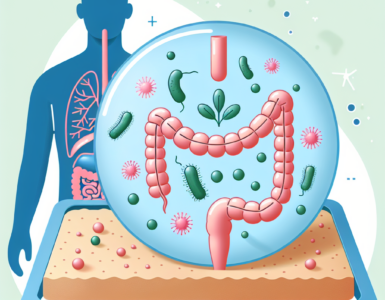Here’s an overview:
- Introduction to Healthy Brain Aging
- The Science Behind Brain Aging
- Diet and Nutrition for Brain Health
- The Role of Exercise in Brain Aging
- Mental Stimulation and Cognitive Reserve
- Social Connections and Emotional Well-Being
- Sleep and Its Impact on Brain Aging
- Managing Stress for a Healthy Brain
- Supplements and Herbalife Products for Brain Health
- Technology and Tools to Support Brain Health
- Early Detection and Prevention Strategies
- Living a Balanced Lifestyle for Longevity

Introduction to Healthy Brain Aging
Aging can bring various changes to the brain and cognitive functions. However, adopting specific lifestyle habits can promote healthy brain aging and support cognitive health over time. The importance of maintaining brain health cannot be overstated, as it influences overall well-being and quality of life in older age. In this section, readers will explore strategies and insights to foster healthy brain aging.
Diet and Nutrition
Proper nutrition plays a critical role in brain health. Consuming a balanced diet rich in essential nutrients supports cognitive function and may reduce the risk of age-related cognitive decline.
- Omega-3 Fatty Acids: Found in fish, flaxseed, and walnuts, omega-3s support brain health by reducing inflammation and promoting neuronal function.
- Antioxidants: Foods like berries, dark chocolate, and spinach are high in antioxidants, which protect brain cells from oxidative stress.
- B Vitamins: Vitamins like B12 and folate help maintain memory and brain function. These can be found in leafy greens, fish, and dairy products.
Physical Activity
Regular physical activity has been shown to benefit brain health in several ways. Exercise increases blood flow to the brain, which helps with the delivery of oxygen and nutrients.
- Aerobic Exercise: Activities such as walking, cycling, and swimming improve cardiovascular health and support brain function.
- Strength Training: Weight lifting and resistance exercises not only benefit muscle health but also improve cognitive abilities.
Mental Stimulation
Keeping the brain active through mental challenges can enhance neuroplasticity, the brain’s ability to adapt and change.
- Puzzles and Games: Engaging in activities like crossword puzzles, sudoku, and brain games exercises cognitive functions.
- Learning New Skills: Taking up new hobbies, learning languages, or playing instruments stimulates the brain and promotes mental agility.
Social Engagement
Maintaining social connections is crucial for mental health. Socializing can improve mood, reduce stress, and provide cognitive benefits.
- Community Involvement: Participating in community groups or clubs keeps the brain engaged and fosters a sense of belonging.
- Family and Friends: Regular interactions with loved ones can provide emotional support and cognitive stimulation.
Sleep Hygiene
Quality sleep is fundamental for brain health. Adequate rest helps consolidate memories and clear toxins from the brain.
Consistent Schedule: Keeping a regular sleep schedule helps regulate the body’s internal clock.
Sleep Environment: Creating a restful sleeping environment, free from distractions, can improve sleep quality.
The Science Behind Brain Aging
The aging brain undergoes several physiological, structural, and functional changes that can influence cognitive abilities. These changes unfold over time and can vary significantly among individuals. A deeper understanding of the mechanisms behind brain aging can highlight the importance of adopting proactive measures to support cognitive health.
One of the primary physiological changes is the reduction in brain volume, especially in the frontal cortex and hippocampus. These areas are crucial for processing complex thoughts and forming new memories. This shrinkage is often attributed to the loss of neurons and the thinning of dendrites, which can impair signal transmission between different parts of the brain. This leads to slower processing speeds and can affect overall cognitive flexibility.
Neurochemical Changes
The levels of essential neurotransmitters, such as dopamine, serotonin, and acetylcholine, decline with age. These chemicals play significant roles in mood regulation, attention, and memory:
- Dopamine: Decreases in dopamine can result in slower movement and less efficient cognitive processing.
- Serotonin: Lower serotonin levels are linked to issues with mood regulation and can contribute to feelings of depression and anxiety.
- Acetylcholine: Reduced acetylcholine can lead to difficulties in memory retention and learning new information.
Oxidative Stress and Inflammation
Aging brains are more susceptible to oxidative stress and inflammation:
- Oxidative Stress: This occurs when there’s an imbalance between free radicals and antioxidants in the body. Excessive free radicals can damage brain cells, leading to a decline in cognitive functions.
- Inflammation: Chronic inflammation can exacerbate the loss of neuronal cells and contribute to various neurodegenerative diseases.
Synaptic Plasticity
Synaptic plasticity refers to the brain’s ability to strengthen or weaken synapses in response to activity levels. As people age, this plasticity diminishes, making it harder to learn new skills or adapt to new situations. The reduction in synaptic plasticity is linked to a decrease in brain-derived neurotrophic factor (BDNF), a protein that supports neuron survival and growth.
Genetic Factors
Genetics also play a role in brain aging. Variants of certain genes like APOE can influence the risk of developing Alzheimer’s disease. Individuals with the APOE ε4 allele are at a higher risk of cognitive decline compared to those with other alleles.
Vascular Changes
The aging brain can experience changes in blood flow and the integrity of blood vessels. Reduced cerebral blood flow can lead to lower oxygen and nutrient supply, impacting cognitive function. Conditions like hypertension and atherosclerosis can further deteriorate vascular health, contributing to cognitive decline.
Understanding these scientific aspects underscores the necessity of lifestyle interventions, nutritional strategies, and potentially, supplementation to promote healthy brain aging.
Diet and Nutrition for Brain Health
Maintaining a balanced diet plays a crucial role in promoting brain health. Proper nutrition helps in sustaining cognitive function, supporting memory retention, and protecting against neurodegenerative diseases.
Key Nutrients for Brain Health
Omega-3 Fatty Acids:
- Found in fish such as salmon, mackerel, and sardines.
- Plant-based sources include flaxseeds, chia seeds, and walnuts.
- Benefits: Supports cognitive function and reduces inflammation.
Antioxidants:
- Abundant in berries like blueberries, strawberries, and blackberries.
- Other sources include dark chocolate, pecans, and artichokes.
- Benefits: Protects brain cells from oxidative stress and damage.
B Vitamins:
- Sources: Whole grains, green leafy vegetables, eggs, and dairy products.
- Benefits: Essential for brain energy production and neurotransmitter function.
Vitamin E:
- Found in nuts, seeds, spinach, and broccoli.
- Benefits: Protects cell membranes from oxidative damage.
Vitamin C:
- Abundant in citrus fruits, bell peppers, and Brussels sprouts.
- Benefits: Shields brain cells from oxidative stress and promotes overall brain health.
Foods to Incorporate into the Diet
- Leafy Greens: Examples include spinach, kale, and Swiss chard. These are packed with brain-boosting nutrients like vitamin K, folate, and beta carotene.
- Fatty Fish: Rich in omega-3 fatty acids, essential for maintaining brain cell structure and function.
- Berries: High in antioxidants, which help manage inflammation and oxidative stress.
- Nuts and Seeds: Almonds, walnuts, and flaxseeds are excellent sources of healthy fats and antioxidants.
- Whole Grains: Foods like oatmeal, whole wheat bread, and brown rice aid in maintaining steady blood glucose levels, crucial for brain energy.
Foods to Limit
- Sugary Foods and Beverages: High sugar intake is linked to impaired brain function and memory.
- Trans Fats: Found in many processed foods, these fats can negatively impact brain health.
- Excessive Alcohol: Overconsumption can lead to long-term cognitive decline and brain damage.
Hydration
- Importance of Water: Staying hydrated is vital for maintaining cognitive function and overall brain health.
- Herbal Teas: Options like green tea and chamomile tea provide hydration along with antioxidant benefits.
Lifestyle Integration
Meal Regularity: Eating regular, balanced meals ensures steady energy supply to the brain.
Mindful Eating: Focusing on nutrient-dense foods can help in making better dietary choices.
The Role of Exercise in Brain Aging
Regular exercise plays a vital role in maintaining cognitive function and reducing the effects of brain aging. Physical activity enhances blood flow to the brain, which supplies essential nutrients and oxygen. This process supports brain plasticity, the ability of the brain to adapt and form new neural connections.
Benefits of Exercise on Brain Health
- Improved Memory and Learning: Exercise stimulates the production of growth factors that support the health of neurons, improve synaptic plasticity, and foster neurogenesis in the hippocampus, a key area for memory.
- Enhanced Mood and Mental Health: Physical activity increases the production of endorphins, which can reduce symptoms of depression and anxiety. This improvement in mental health is crucial for a well-functioning brain.
- Cognitive Function: Regular exercise, particularly aerobic exercise, is associated with better attention, processing speed, and executive function. These cognitive domains are essential for daily activities and decision-making.
- Reduction of Inflammation: Exercise helps decrease chronic inflammation, which is linked to neurodegenerative diseases such as Alzheimer’s and Parkinson’s. Reducing inflammation can slow down the aging process of the brain.
Types of Exercises Beneficial for Brain Aging
- Aerobic Exercise: Activities like walking, jogging, cycling, and swimming significantly improve cardiovascular health, which directly impacts brain health.
- Strength Training: Lifting weights or using resistance bands can help improve muscle mass, which supports overall brain health. Strong muscles are linked to better brain function.
- Balance and Flexibility Exercises: Yoga and tai chi enhance balance and flexibility, reducing the risk of falls and injuries that can adversely affect brain health.
- Mental and Physical Activities Combined: Activities like dancing or playing sports require mental engagement alongside physical effort, offering dual benefits for brain function.
Recommendations for Exercise Routine
- Frequency: Adults should aim for at least 150 minutes of moderate-intensity aerobic exercise per week.
- Variety: Incorporating a mix of cardiovascular, strength, and flexibility exercises ensures comprehensive benefits.
- Consistency: Maintaining a regular exercise schedule is key to long-term brain health benefits.
Regular physical activity is a cornerstone of healthy brain aging. The multitude of benefits provided by exercise makes it an indispensable habit for preserving cognitive function and enhancing quality of life.
Mental Stimulation and Cognitive Reserve
A critical aspect of maintaining a healthy brain as one ages is ensuring consistent mental stimulation. Mental stimulation is essential for building and preserving cognitive reserve, which can help delay the onset of cognitive decline.
Engage in Challenging Activities
- Puzzles and Games: Activities such as crosswords, Sudoku, and jigsaw puzzles can stimulate different parts of the brain.
- Cards and Board Games: Strategic games like chess and bridge encourage critical thinking and problem-solving.
- Brain-Training Apps: Various apps are available that feature games designed to enhance memory, attention, and cognitive flexibility.
Lifelong Learning
- Classes and Workshops: Taking up new subjects or skills through community colleges, online courses, or local workshops can provide mental exercise.
- Reading: Engaging with books, articles, and blogs provides continuous learning and exposure to new ideas.
- Languages: Learning a new language challenges the brain and improves cognitive function.
Social Interaction
- Community Involvement: Participating in clubs, organizations, or volunteering offers opportunities for mental engagement and socialization.
- Regular Conversations: Engaging in meaningful dialogues with friends and family can help keep the brain active.
- Group Activities: Joining group activities such as dance, exercise classes, or book clubs combines social interaction with mental engagement.
Creative Outlets
- Art and Craft Projects: Pursuing hobbies like painting, knitting, or woodworking stimulates different areas of the brain.
- Music and Performing Arts: Learning an instrument or participating in theater improves memory and multitasking abilities.
- Writing: Whether it’s journaling, storytelling, or poetry, writing exercises cognitive function and creativity.
Technological Engagement
- Use of Gadgets: Keeping up with the latest technology and learning new software applications provide continuous mental challenges.
- Virtual Reality (VR): VR games and simulations can offer immersive environments for mental and physical activities.
- Social Media Interaction: Engaging thoughtfully with social media can stimulate the brain through information exchange and social dialogue.
Healthy Routine Integration
Integrating mental stimulation activities into daily routines ensures consistent cognitive engagement. Variety is key—balancing different types of mental exercises can optimize cognitive reserve building. This multifaceted approach aids in maintaining cognitive health throughout the aging process.
Social Connections and Emotional Well-Being
Supporting healthy brain aging, social connections play an essential role in emotional well-being. Strong social ties can help mitigate stress, anxiety, and depression, which are harmful to cognitive health.
Factors Enhancing Social Connections:
Family Bonds:
- Maintaining regular communication with family members reinforces emotional support.
- Participating in family gatherings and traditions fosters a sense of belonging.
Friendships:
- Engaging in regular social activities with friends helps build a support network.
- Joining clubs or groups that align with personal interests can foster new friendships.
Community Engagement:
- Volunteering offers a dual benefit of helping others while boosting one’s own self-worth.
- Participating in local events or community centers can promote a sense of community and purpose.
Digital Connection:
- Utilizing social media and online platforms can help maintain connections, especially for those with limited mobility.
- Online support groups provide a sense of community for individuals with shared experiences or interests.
Pet Companionship:
- Interacting with pets can reduce loneliness and increase emotional well-being.
- Activities like walking a dog or attending pet-related events can enhance social interactions.
Benefits of Strong Social Connections:
Emotional Regulation:
- Engaging with supportive relationships can help in managing emotions and reducing negative affect.
Cognitive Stimulation:
- Social interactions stimulate cognitive processes, potentially delaying the onset of cognitive decline.
Stress Reduction:
- Confiding in friends or family can provide an outlet for stress, mitigating its impact on overall brain health.
Purpose and Engagement:
“A sense of belonging and purpose derived from social connections can significantly enhance one’s quality of life.”
Practical Tips for Strengthening Social Ties:
Schedule Regular Meet-Ups:
- Plan coffee dates, dinners, or catch-ups with friends and family.
Engage in Group Activities:
- Consider group fitness classes, book clubs, or art classes to increase social interaction.
Leverage Technology:
- Use video calls to stay connected with distant friends and family.
Challenges and Solutions:
Overcoming Shyness:
- Practice small talk and gradually expand social circles.
Limited Mobility:
- Engage in virtual communities or use adaptive transportation solutions for social events.
Strengthening social connections and ensuring emotional well-being are pivotal for healthy brain aging.
Sleep and Its Impact on Brain Aging
Sleep plays a vital role in maintaining both physical and mental health. Its impact on brain aging is significant, influencing cognitive functions, memory, and overall brain health.
Cognitive Function:
- Adequate sleep supports the brain’s ability to process and consolidate information.
- Poor sleep quality or sleep disorders, such as insomnia or sleep apnea, can impair cognitive functions, including learning, attention, and problem-solving.
- Continuous lack of sleep can lead to long-term cognitive decline, affecting daily activities and independence in older adults.
Memory Consolidation:
- During sleep, the brain consolidates memories by transferring information from short-term to long-term memory.
- REM sleep and deep sleep are particularly important for this process.
- Sleep deprivation disrupts these stages, hindering the brain’s ability to form and retain memories.
Neuroprotection:
- Sleep aids in the removal of brain toxins, including beta-amyloid, which is associated with Alzheimer’s disease.
- Quality sleep helps reduce oxidative stress and inflammation, factors linked to neurodegenerative diseases.
- Regular, restorative sleep contributes to long-term brain health and can delay the onset of cognitive disorders.
Mood Regulation:
- Adequate sleep is essential for emotional regulation and mental health.
- Chronic sleep problems can lead to mood disorders such as depression and anxiety.
- Poor emotional health indirectly affects cognitive performance and brain aging.
Key Strategies for Improving Sleep Quality:
- Consistency:
- Maintain a regular sleep schedule by going to bed and waking up at the same time every day.
- Sleep Environment:
- Create a comfortable, dark, and quiet sleeping environment.
- Use blackout curtains, earplugs, or white noise machines if necessary.
- Lifestyle Choices:
- Avoid caffeine and large meals close to bedtime.
- Incorporate regular physical activity into the daily routine, but avoid vigorous exercise right before bedtime.
- Relaxation Techniques:
- Practice relaxation exercises such as deep breathing, meditation, or gentle yoga.
- Limit Screen Time:
- Reduce exposure to screens from electronic devices at least an hour before bed.
These steps can enhance sleep quality, supporting brain health and decelerating the aging process.
Managing Stress for a Healthy Brain
Managing stress is crucial for maintaining brain health. Chronic stress can lead to a variety of cognitive and emotional issues. It can contribute to memory problems, anxiety, depression, and other mental health concerns. By effectively managing stress, one can promote a healthy brain and overall well-being.
Incorporate Relaxation Techniques
- Mindfulness Meditation: Practicing mindfulness can help reduce stress and improve cognitive functions. Spend a few minutes each day focusing on your breath and being present in the moment.
- Deep Breathing Exercises: Deep breathing helps to calm the nervous system. Try inhaling for four counts, holding for four, and exhaling for four.
- Progressive Muscle Relaxation: This technique involves tensing and then slowly relaxing each muscle group in the body. Start from your toes and work your way up to your head.
Stay Physically Active
Regular physical activity can reduce stress hormones and trigger the release of endorphins, which serve as natural mood elevators.
- Aerobic Exercise: Engaging in activities such as walking, jogging, swimming, or cycling can be especially effective.
- Yoga: This mind-body practice combines physical postures, breathing techniques, and meditation to reduce stress.
- Strength Training: Lifting weights or using resistance bands can help release tension and improve mood.
Social Connections
Maintaining strong social connections is another effective way to manage stress.
- Stay Connected with Friends and Family: Regular interaction with loved ones can provide emotional support and reduce feelings of isolation.
- Join Groups or Clubs: Participate in community activities or clubs that interest you. This can help build a sense of belonging and reduce stress.
- Volunteer: Helping others can provide a sense of purpose and improve your mood.
Healthy Lifestyle Choices
Adopting a healthy lifestyle can significantly impact stress levels and brain health.
- Balanced Diet: Consume a diet rich in fruits, vegetables, whole grains, lean proteins, and healthy fats. Avoid excessive caffeine and sugar.
- Adequate Sleep: Aim for 7-9 hours of sleep per night to allow the brain to rest and rejuvenate.
- Avoid Alcohol and Drugs: These substances can contribute to stress and negatively affect brain health.
Time Management
Effective time management can reduce stress by making daily activities more manageable.
- Prioritize Tasks: Focus on completing the most important tasks first. Break large projects into smaller, manageable parts.
- Set Realistic Goals: Aim for achievable targets to avoid feeling overwhelmed.
- Take Breaks: Regular breaks can prevent burnout and improve productivity.
By incorporating these strategies into daily life, managing stress becomes more achievable, contributing to a healthier brain and improved overall well-being.
Supplements and Herbalife Products for Brain Health
For those interested in supporting brain health, supplements can be a valuable addition to a balanced, nutrient-rich diet. The following categories of supplements and Herbalife products may contribute positively to cognitive function and overall brain health.
Omega-3 Fatty Acids
- Fish oil supplements, known for their high concentration of Omega-3 fatty acids, support brain function.
- Essential for maintaining cell membrane health, Omega-3 fatty acids are linked to improved cognitive abilities.
Antioxidants
- Vitamin E: Known for its antioxidant properties, Vitamin E helps combat oxidative stress, which can damage brain cells.
- Ginkgo Biloba: This herbal supplement has been traditionally used to enhance memory and cognitive function.
B Vitamins
- B6, B12, and Folate: These vitamins are essential for brain health as they assist in the reduction of homocysteine levels, a compound linked to cognitive decline.
Herbalife Products
Herbalife offers a range of products designed to support brain health through proper nutrition.
- Herbalife Formula 1 Nutritional Shake Mix
- Provides a balanced meal full of essential nutrients, promoting overall brain function and energy levels.
- Herbalife MemoryArmor
- Contains Bacopa monnieri and Vitamin E, designed to support cognitive health and memory performance.
- Herbalife Liftoff®
- An energy supplement that combines natural caffeine with vitamins B6 and B12 to enhance mental clarity and focus.
Amino Acids
- L-Theanine: Found in tea leaves, this amino acid promotes relaxation and enhances attention.
- Acetyl-L-Carnitine: May help boost brain energy levels and reduce mental fatigue.
Herbal Supplement Considerations
- Rhodiola Rosea: Traditionally used to alleviate stress and combat fatigue, promoting mental clarity.
- Ashwagandha: An adaptogenic herb that may help in reducing stress and improving cognitive function.
Usage Recommendations
When considering the use of supplements or Herbalife products for brain health, it is essential to:
- Consult with healthcare providers to ensure compatibility with individual health conditions and medications.
- Follow recommended dosages and usage guidelines for optimal benefits.
Incorporating these supplements and Herbalife products may contribute to a healthy lifestyle focused on maintaining and enhancing brain health.
Technology and Tools to Support Brain Health
In the fast-paced world of technological advancements, various tools and gadgets are available to support brain health and promote cognitive function. Integrating these technologies into daily routines can provide significant benefits.
Brain Training Apps
Brain training apps are designed to enhance memory, problem-solving skills, and attention through interactive games and exercises. Popular apps include:
- Lumosity: Offers personalized training programs based on cognitive research.
- Elevate: Focuses on communication and analytical skills.
- Peak: Features daily workouts to challenge cognitive abilities.
Wearable Devices
Wearable devices track physiological data and provide insights into brain health. Key examples include:
- Smartwatches: Monitor physical activity, heart rate, and sleep patterns to ensure a balanced lifestyle.
- EEG Headbands: Measure brainwave activity to help users manage stress and improve focus.
Virtual Reality (VR)
VR technology is employed in cognitive rehabilitation and mental stimulation. VR environments offer engaging and immersive experiences, useful for:
- Memory Care: Assisting individuals with Alzheimer’s or other dementias to recall memories.
- Cognitive Exercises: Providing challenging scenarios to boost mental acuity.
Nutrition and Fitness Apps
Apps focusing on nutrition and fitness contribute indirectly to brain health. Proper diet and exercise are crucial for cognitive function. Notable apps include:
- MyFitnessPal: Tracks dietary intake to ensure nutrient-rich food consumption.
- Fitbit: Encourages regular physical activity through tracking and motivational prompts.
Online Learning Platforms
Continuous learning stimulates the brain, and online platforms make this accessible to everyone. Highly regarded platforms include:
- Coursera: Offers a range of courses from top universities.
- Duolingo: Facilitates language learning to improve cognitive elasticity.
- Khan Academy: Provides free courses on various subjects to keep the mind engaged.
Digital Therapy
Teletherapy and mental wellness apps provide support for mental health, which is vital for overall brain health. Useful resources include:
- BetterHelp: Connects users with licensed therapists for remote sessions.
- Headspace: Offers guided meditation and mindfulness exercises.
By leveraging these tools and technology, individuals can enhance their brain health and contribute to healthy brain aging.
Early Detection and Prevention Strategies
Early detection and prevention strategies play a crucial role in maintaining brain health as individuals age. These strategies can help in identifying potential issues early and implementing measures to reduce risks. Here are some essential practices for early detection and prevention:
Regular Check-ups:
- It’s important to have regular medical check-ups that include cognitive assessments.
- Screenings for blood pressure, cholesterol levels, and diabetes can help in identifying risk factors related to brain health.
- Discuss any memory concerns or changes in cognitive function with healthcare providers.
Cognitive Training:
- Engaging in brain games, puzzles, and problem-solving activities can enhance mental functions.
- Learning new skills or hobbies stimulates brain activity and promotes neuroplasticity.
- Apps and programs designed for cognitive training can be beneficial.
Healthy Lifestyle Choices:
- Adopt a balanced diet rich in fruits, vegetables, whole grains, lean proteins, and healthy fats.
- Regular physical activity, such as walking, swimming, or yoga, can improve blood flow to the brain.
- Adequate sleep and stress management practices are vital for cognitive health.
Social Engagement:
- Maintaining social connections with family, friends, and community supports mental and emotional well-being.
- Participating in group activities, volunteering, and joining clubs can foster social interactions.
- Online platforms offer opportunities for virtual socialization, especially for those with mobility issues.
Mental Health:
- Monitor and manage symptoms of depression, anxiety, and other mental health conditions.
- Seek professional help if experiencing significant mood changes or persistent sadness.
- Mindfulness practices and relaxation techniques, such as meditation and deep breathing, can reduce stress levels.
Avoiding Risk Factors:
- Limit alcohol consumption and avoid smoking, as these can negatively impact brain health.
- Stay aware of environmental toxins and minimize exposure to harmful chemicals.
- Use protective gear, like helmets, to prevent head injuries during physical activities.
Regularly incorporating these practices can significantly contribute to healthier brain aging and overall well-being. Early action and consistent effort in these areas can make a considerable difference in maintaining cognitive function and quality of life.
Living a Balanced Lifestyle for Longevity
Achieving a balanced lifestyle is essential for promoting longevity and maintaining cognitive function. By integrating various healthy habits, individuals can significantly impact their brain health and overall well-being.
Physical Activity
Regular physical exercise boosts blood flow to the brain, enhancing cognitive function and reducing the risk of mental decline. Recommended activities include:
- Aerobic Exercises: Walking, swimming, and cycling can improve cardiovascular health and brain function.
- Strength Training: Weight lifting helps maintain muscle mass and supports bodily functions.
- Flexibility Workouts: Yoga and stretching exercises aid in relaxation and decrease stress levels.
Nutritious Diet
A balanced diet provides the necessary nutrients for brain health. Key dietary components to focus on include:
- Fruits and Vegetables: Rich in antioxidants, they protect against cellular damage.
- Omega-3 Fatty Acids: Found in fish, they support brain cell structure.
- Whole Grains: Provide a steady source of energy for the brain.
- Hydration: Staying well-hydrated improves focus and mental clarity.
Mental Stimulation
Engaging in mentally stimulating activities can preserve cognitive function. Effective ways to keep the mind sharp include:
- Puzzles and Games: Sudoku, crossword puzzles, and chess challenge the brain.
- Reading and Writing: Stimulates critical thinking and comprehension skills.
- Learning New Skills: Taking up new hobbies or learning languages enhances brain plasticity.
Social Interaction
Maintaining strong social connections is vital for emotional well-being and cognitive health. Encourage activities such as:
- Group Activities: Joining clubs or community groups fosters a sense of belonging.
- Volunteering: Engaging in community service can offer fulfillment and social interaction.
- Regular Communication: Keeping in touch with friends and family strengthens emotional bonds.
Stress Management
Effective stress management techniques can protect brain health and improve quality of life. Ideal strategies include:
- Meditation: Promotes relaxation and reduces anxiety.
- Deep Breathing Exercises: Helps in managing stress responses.
- Mindfulness Practices: Staying present can improve mental resilience and reduce stress.
By combining these elements into a daily routine, individuals can enhance their brain health and increase their chances of leading a longer, more fulfilling life.
Disclaimer: This content is intended for informational purposes only and does not constitute medical advice, diagnosis, or treatment. While diet plays a significant role in supporting gut health, individual needs may vary. Always consult with a healthcare professional or a registered dietitian before making any changes to your diet, especially if you have existing health conditions or concerns. Use of this information is at your own risk.











